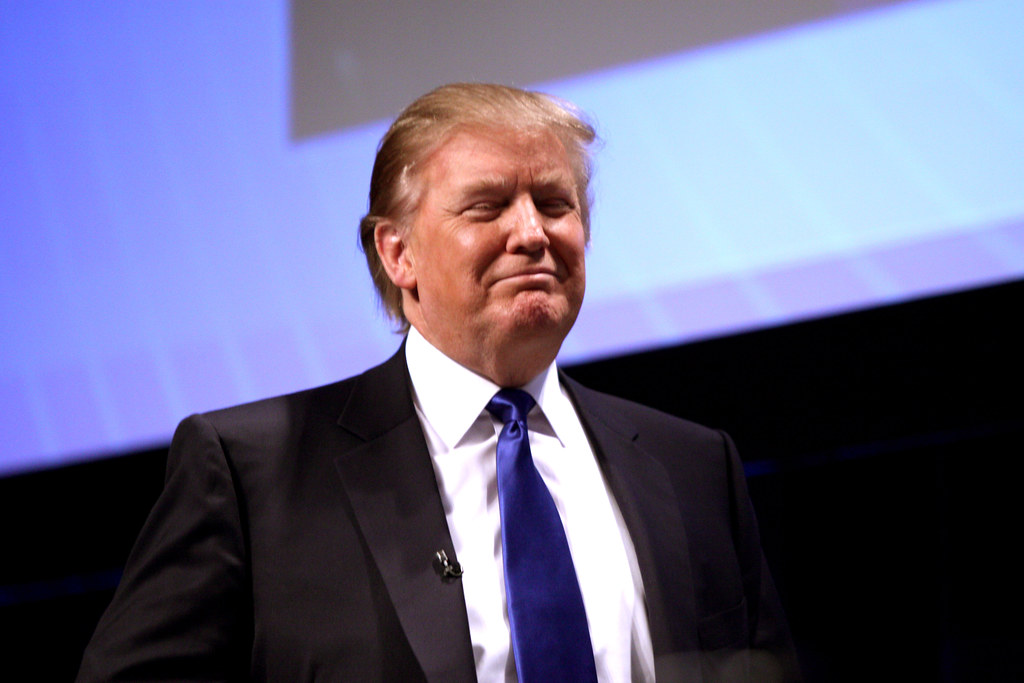Key Takeaways
- Donald Trump says foreign workers are “welcome” in the U.S.
- He wants to avoid scaring off international investors.
- His comments come after a recent arrest of South Korean workers in Georgia.
- Trump emphasizes the need to balance law enforcement and economic investment.
Foreign Workers Find Surprising Support from Trump
Former President Donald Trump recently made headlines by expressing support for foreign workers in the United States. In a message posted on his Truth Social platform, he emphasized that he doesn’t want to scare away foreign investors. This comes just days after hundreds of South Korean workers were arrested in Georgia, raising concerns over how the U.S. treats the foreign workforce.
Trump’s Latest Statement Shifts Tone
For years, Donald Trump took a hard stance on immigration. Many remember his promise to build a wall and limit the number of people coming into the country. But now, his words about foreign workers tell a different story. Trump said foreign workers are “welcome” and stressed he doesn’t want to “frighten off” overseas investors.
This sudden change in tone came after the arrest of over 200 South Koreans working at a Georgia construction site. Immigration police had carried out a sweep, leading to a public outcry and diplomatic concern. Trump, likely aware of how it could affect foreign relations and the economy, quickly clarified his position.
Why Are Foreign Workers Important?
Foreign workers fill many jobs across America, from farming and construction to high-tech jobs in Silicon Valley. U.S. businesses often depend on these workers because many of them accept positions that are hard to fill. When these workers feel unsafe or unwanted, companies could struggle to find enough labor.
On top of that, these companies usually have international partners. If investors believe their workers might be arrested or treated poorly, they may take their money elsewhere. By saying foreign workers are “welcome,” Trump seems to be trying to keep the investment dollars flowing into the country.
What Happened in Georgia?
The situation that led to Trump’s comments unfolded in Georgia about ten days ago. A large number of South Korean workers were working on a U.S. construction project. Immigration and Customs Enforcement (ICE) agents raided the worksite and arrested hundreds of them. Officials said the arrests were based on visa violations and unauthorized work status.
The event created ripple effects. South Korea expressed concern over the treatment of its citizens. Business leaders also spoke out, warning that these events could damage America’s image as a friendly place for international partnership.
How Trump’s Comment Affects Public Opinion
It’s not often that Donald Trump softens his tone on immigration. While some of his core supporters may find his recent remark surprising, others appreciate the balance he’s trying to strike. The message seems to be this: America can enforce its laws without pushing away valuable global partnerships.
Trump’s supporters who focus on the economy might welcome his statement. After all, many factories and businesses in the U.S. rely on the work of people from other countries. Meanwhile, those worried about national safety still hear Trump promising strong borders and careful screening.
A Balancing Act Between Law and Investment
Finding the right balance isn’t easy. On one hand, the U.S. wants to make sure everyone follows its rules, including workers and employers. On the other hand, being overly strict could send a message that the country isn’t open for business. That’s a risk Trump doesn’t seem willing to take.
By saying foreign workers are “welcome,” Trump acknowledges a key concern of many business owners and global investors. He also sends a signal to American voters that he cares about jobs and economic growth. While arrests may still happen, his statement shows he’s thinking about the bigger picture.
How Will This Affect Future Policies?
Trump’s comment may influence how leaders craft future immigration and labor policies. If foreign investors feel more confident, they might continue bringing money and job opportunities to the U.S. On the flip side, immigration officials might become more careful about how they conduct operations, especially in high-profile cases.
Policy experts are now trying to figure out what this means long-term. Will Trump push for friendlier visa programs for skilled workers? Could there be more protections for companies that hire legal foreign workers? Questions like these now sit at the center of debates as the next election cycle draws near.
Trump’s Words Could Calibrate Immigration Attitudes
Although known for strict immigration policies, Trump’s recent statement appears to be a recalibration. It shows he acknowledges the importance of foreign workers in economic development. Investors, company owners, and international governments will be watching closely to see whether his actions align with his words.
As election season approaches, Trump’s tone on foreign workers could play a major role in how undecided voters view him. Will he continue walking the line between law enforcement and open investment? Only time will tell.
Conclusion
Donald Trump’s message that foreign workers are “welcome” surprised many, especially given his past views. But his words may help calm anxious investors and promote a more balanced approach to managing both immigration and business. As companies rely on foreign labor and international investment, comments like these could play a big role in shaping America’s future immigration and business landscapes.
FAQs
Why did Trump say foreign workers are welcome now?
Trump said this to avoid scaring off international investors after a large group of foreign workers was arrested in Georgia.
Were South Korean workers doing anything illegal?
Officials said they violated work visa rules, but the situation caused concern about how the arrests were handled.
How important are foreign workers to the U.S. economy?
Very. Many U.S. companies rely on foreign workers for jobs that are hard to fill, especially in construction, tech, and agriculture.
Could this change how America treats immigrant workers?
Possibly. Trump’s statement may lead to more balanced policies that protect both law enforcement efforts and economic interests.
